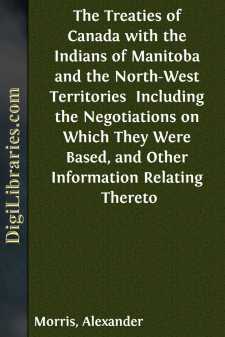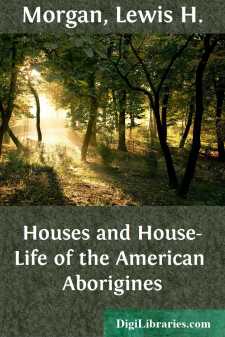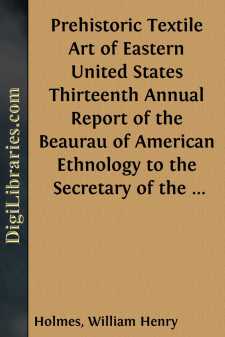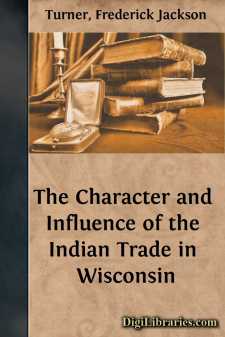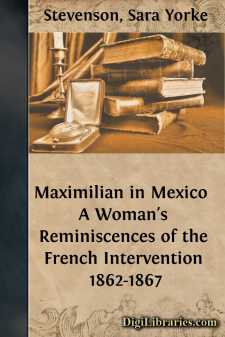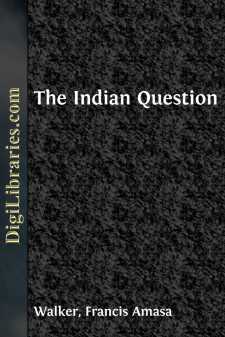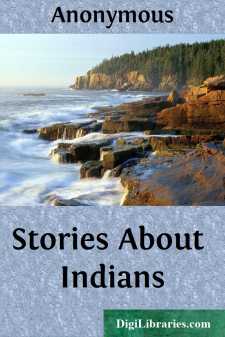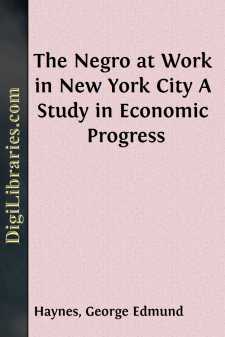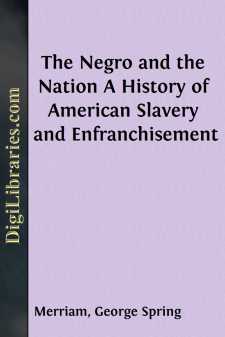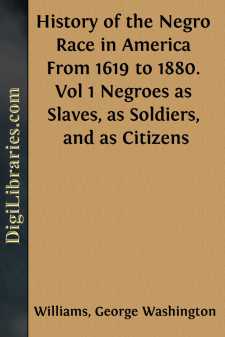History
- Africa 30
- Americas (North Central South West Indies)
- Ancient 68
- Asia 58
- Australia & New Zealand 8
- Canada 41
- Caribbean & West Indies 1
- Civilization 20
- Eastern Europe 12
- Europe 310
- Expeditions & Discoveries 60
- General 77
- Historical Geography 1
- Jewish 9
- Latin America 3
- Medieval 8
- Middle East 14
- Military 248
- Revolutionary 8
- Study & Teaching 5
- United States 353
- Western Europe 56
- World 13
Americas (North Central South West Indies) Books
Sort by:
by:
Alexander Morris
INTRODUCTION One of the gravest of the questions presented for solution by the Dominion of Canada, when the enormous region of country formerly known as the North-West Territories and Rupert's Land, was entrusted by the Empire of Great Britain and Ireland to her rule, was the securing the alliance of the Indian tribes, and maintaining friendly relations with them. The predecessors of Canada--the...
more...
by:
Lewis H. Morgan
PREFACE. The following work substantially formed the Fifth Part of the original manuscript of "Ancient Society," under the title "Growth of the Idea of House Architecture." As the manuscript exceeded the limits of a single volume, this portion (Part V) was removed, and having then no intention to publish it separately, the greater part of it found its way into print in detached...
more...
SCOPE OF THE WORK. About the year 1890 the writer was requested by the Director of the Bureau of Ethnology to prepare certain papers on aboriginal art, to accompany the final report of Dr. Cyrus Thomas on his explorations of mounds and other ancient remains in eastern United States. These papers were to treat of those arts represented most fully by relics recovered in the field explored. They included...
more...
INTRODUCTION. The trading post is an old and influential institution. Established in the midst of an undeveloped society by a more advanced people, it is a center not only of new economic influences, but also of all the transforming forces that accompany the intercourse of a higher with a lower civilization. The Phœnicians developed the institution into a great historic agency. Closely associated with...
more...
PRELUDE In offering these pages to the public, my aim is not to write a historical sketch of the reign of Maximilian of Austria, nor is it to give a description of the political crisis through which Mexico passed during that period. My only desire is to furnish the reader with a point of view the value of which lies in the fact that it is that of an eyewitness who was somewhat more than an ordinary...
more...
THE INDIAN QUESTION. On the 3d of March, 1871, Congress declared that "hereafter no Indian nation or tribe within the territory of the United States shall be acknowledged or recognized as an independent nation, tribe, or power, with whom the United States may contract by treaty." Brave words these would have seemed to good William Penn, treating with the Lenni Lenape, under the elm at...
more...
by:
Anonymous
HE Indians were formerly lords of the soil we now occupy, and obtained a subsistence principally by hunting and fishing. They generally lived in villages, containing from fifty to five hundred families. Their houses, called wigwams, were usually constructed of poles, one end being driven into the ground, and the other bent over so as to meet another fastened in like manner; both being joined together...
more...
PREFACE This study was begun as one of the several researches of the Bureau of Social Research of the New York School of Philanthropy, largely at the suggestion of Dr. Samuel McCune Lindsay, the director, to whose interest, advice and sympathy its completion is largely due. Sincere thanks are due the Bureau for making the investigation possible. The material was gathered between January, 1909, and...
more...
CHAPTER I HOW SLAVERY GREW IN AMERICA An English traveler, riding along the banks of the Potomac in mid-July, 1798, saw ahead of him on the road an old-fashioned chaise, its driver urging forward his slow horse with the whip, until a sharp cut made the beast swerve, and the chaise toppled over the bank, throwing out the driver and the young lady who was with him. The traveler—it was John Bernard, an...
more...
CHAPTER I. THE UNITY OF MANKIND. The Biblical Argument.—One Race and One Language.— One Blood.—The Curse of Canaan. DURING the last half-century, many writers on ethnology, anthropology, and slavery have strenuously striven to place the Negro outside of the human family; and the disciples of these teachers have endeavored to justify their views by the most dehumanizing treatment of the Negro....
more...


